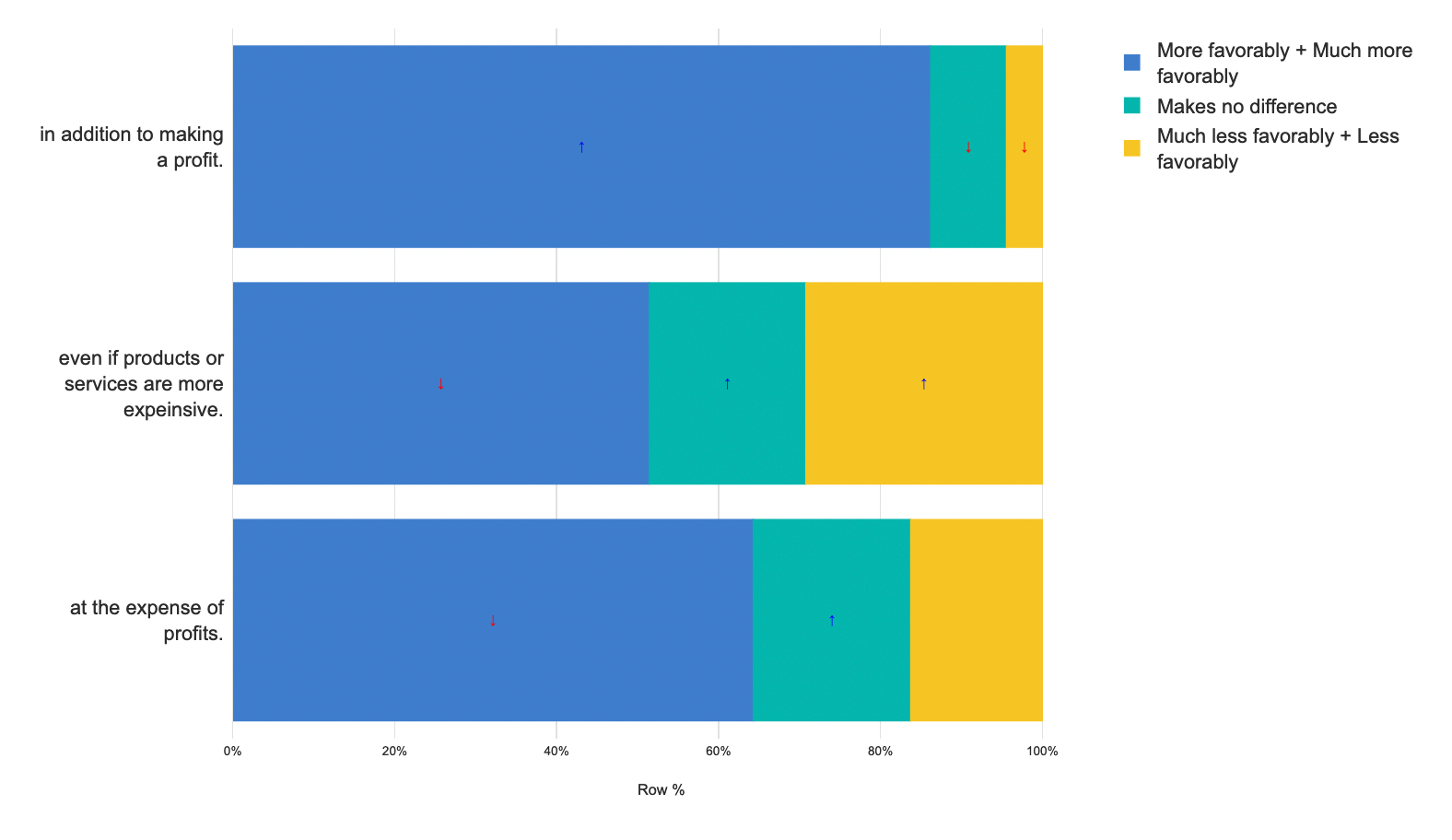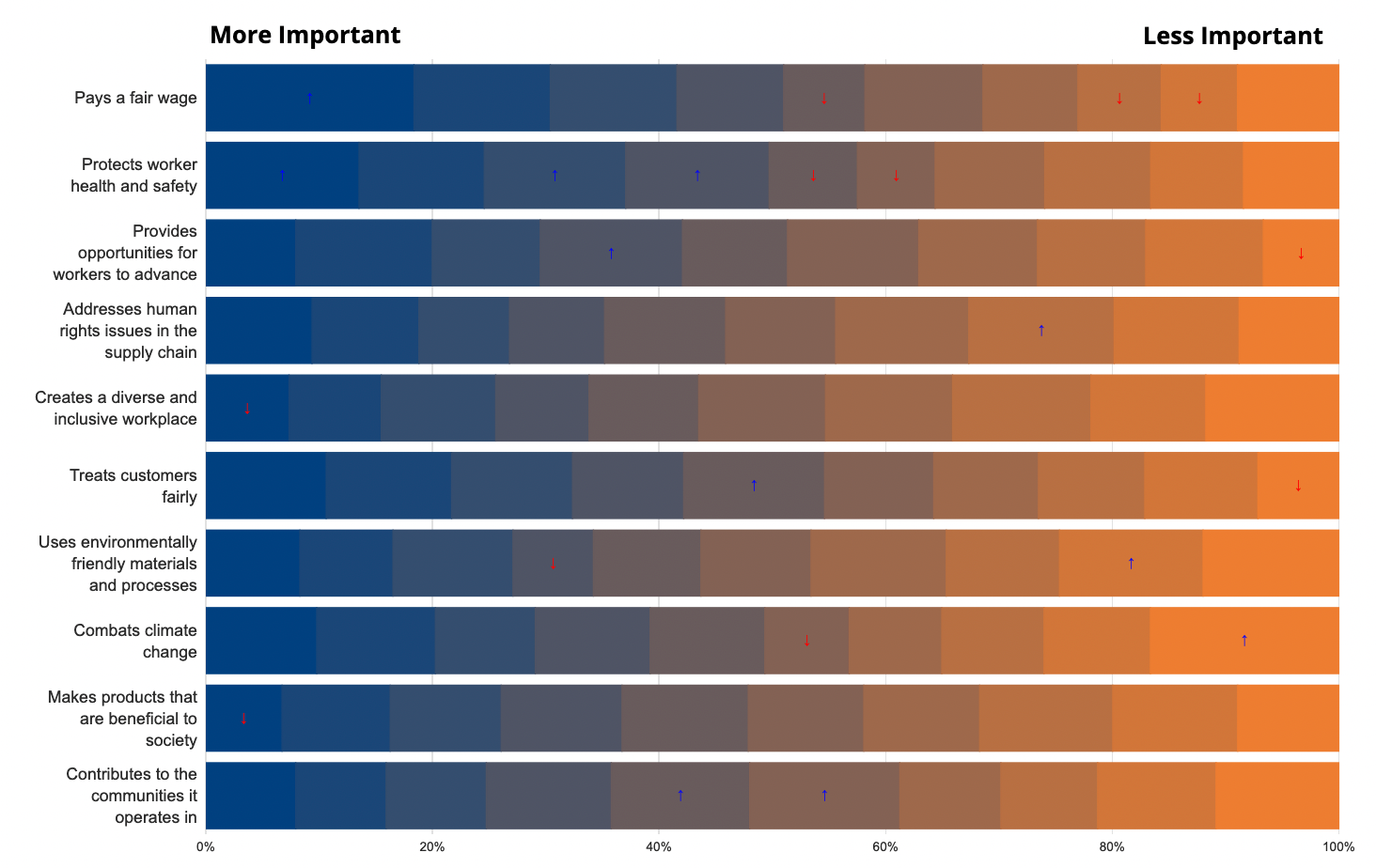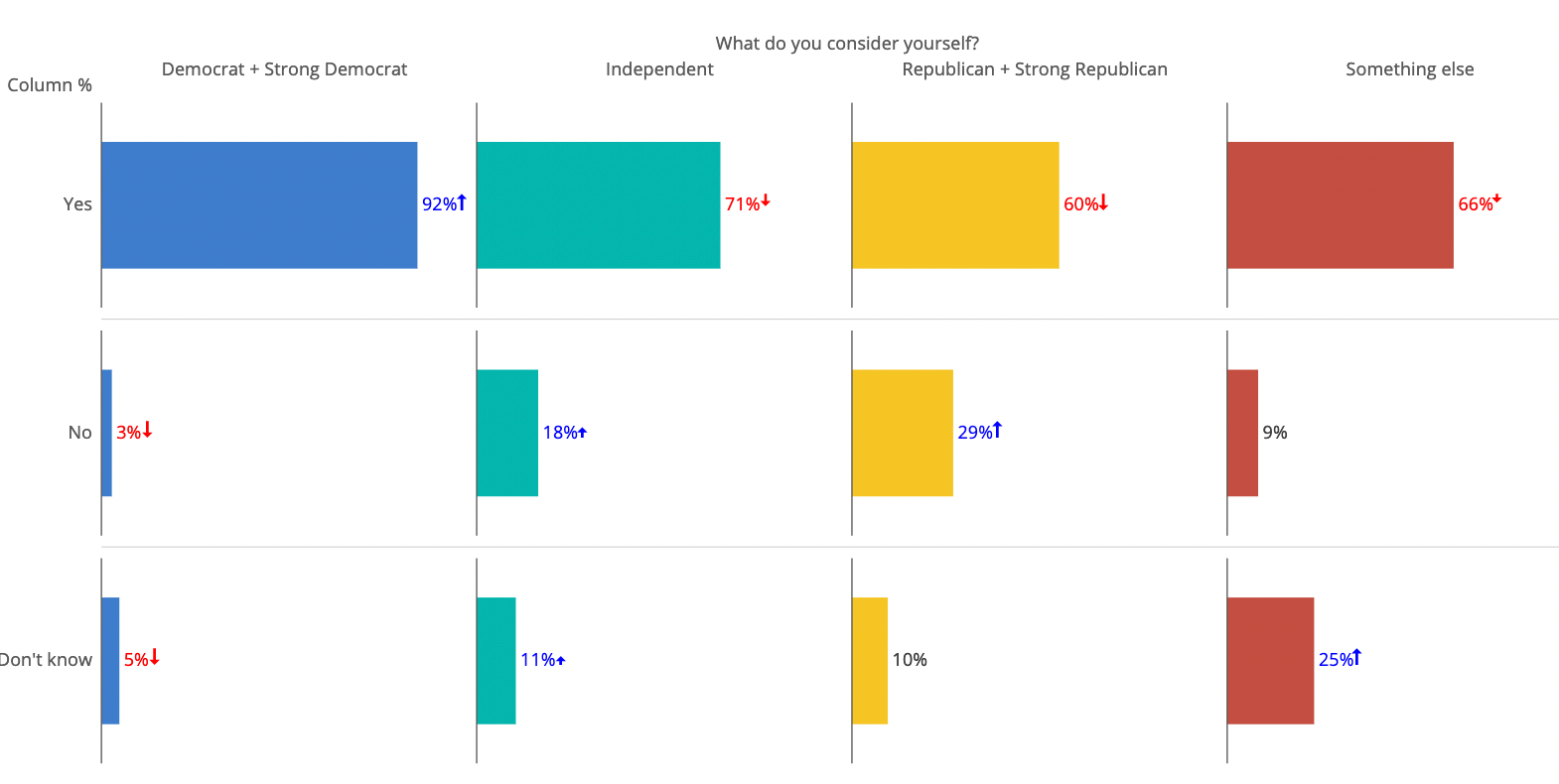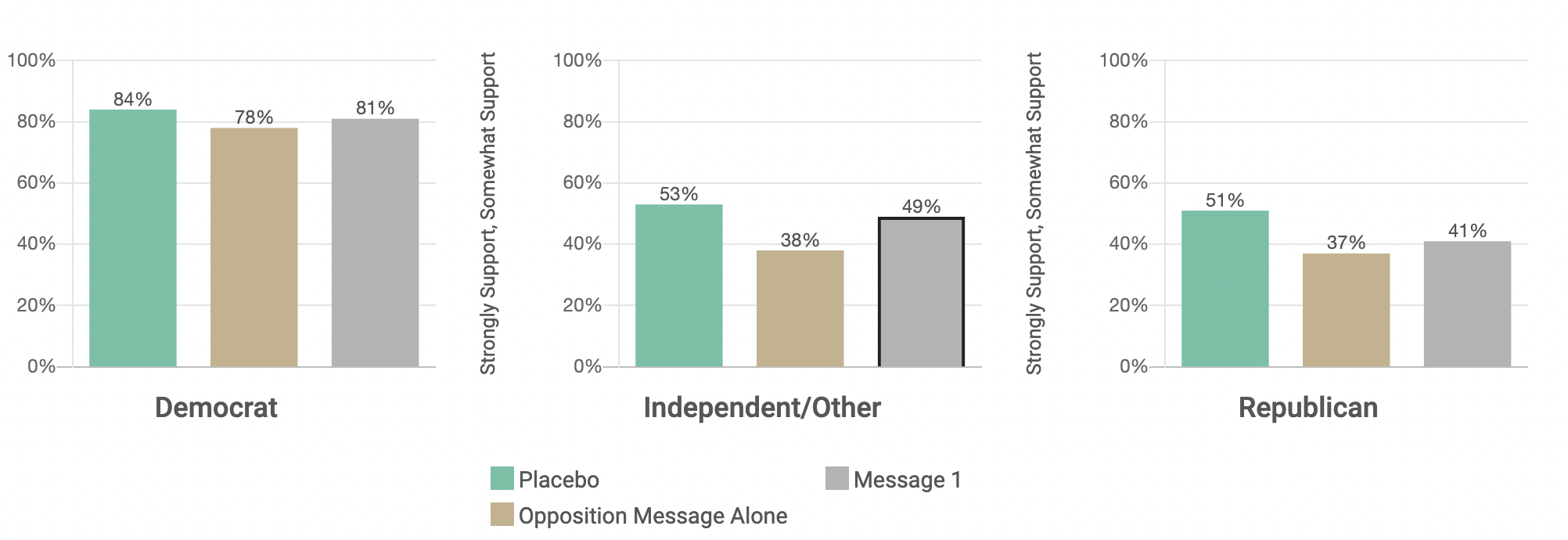ESG Under Attack

ESG is under attack from the political right. Environmental, social and governance initiatives have come under increased scrutiny. Republicans in Congress sent a bill to President Biden’s desk that would have eliminated a Department of Labor Rule that makes it easier for fund managers to consider ESG measures. Beyond Congress, several states, including Florida, have taken aim at ESG.
What are opponents of ESG saying? That corporate America has become too “woke,” and is attempting to force a radical political agenda on Americans.
In response, we’ve already seen executives begin to change the language they use to speak about initiatives that would fall under the ESG banner. But how much impact are attacks on ESG having on public opinion?
We took a look at how the public feels about ESG in our latest InfluenceIQ survey.
Like all issues, support for ESG initiatives depends on how you talk about it.
The American public generally views brands that “focus on doing things that are good for society, employees, and the environment,” more favorably.

Trade-offs make a significant difference, but it’s not a deal-breaker. While support does drop for “doing things that are good for society, employees and the planet,” when presented with potential tradeoffs (more expensive goods and services and sacrificing profits), a majority still view brands that prioritize “doing good things” favorably.
Some initiatives are more popular than others. Worker well-being (wages, safety and advancement) comes out on top. Not surprisingly, there are some partisan differences, with Democrats more likely to rank initiatives like combating climate change higher than Republicans and independents.

Despite partisan differences in the importance of specific ESG initiatives, a majority believe Congress should enact policies that encourage companies to focus more on addressing issues like climate change, wage fairness and workplace equality. Support for Congressional action holds up across party lines.

While this generally good news for proponents of ESG, attacks from the right do have some impact, but it's mostly in ways we would expect in the current political environment. Attacks are effective among Republicans and Independents, but predictably have no impact on the perceptions of Democrats.

The political risk is real, but so are the business risks posed by the issues ESG is meant to address, meaning sitting on the sidelines won't be an option for executives.
- Don't wait to communicate on critical issues: The longer opponents of ESG have to communicate in the clear, the greater the chance their messaging will gain traction among a broader audience.
- Make the benefits ESG concrete for consumers and stakeholders: The concept of ESG can be abstract, leaving it vulnerable attacks. For example, connect carbon footprint reduction strategies to the concrete impacts of climate change, like increasingly extreme weather.
- Understand your audience: Having a deep understanding of your core audience and their values is critical to crafting the right message to defend against attacks on ESG initiatives.
